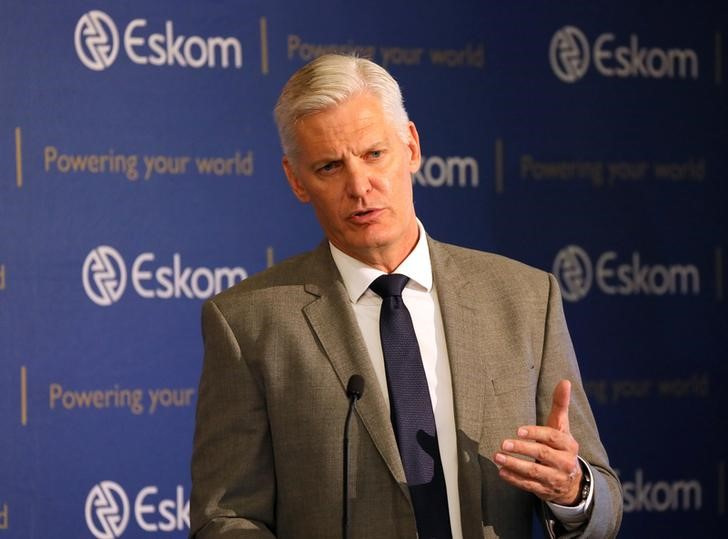
[1/2] Andre de Ruyter, chief executive of state-owned power utility Eskom, speaks during a media briefing in Johannesburg, South Africa, Jan. 31, 2020. REUTERS/Sumaya Hisham
JOHANNESBURG, Dec 14 (Reuters) - South African state power utility's chief executive André de Ruyter has resigned, the country's government-owned public broadcaster SABC, local news outlet News24 and a source at the company said on Wednesday.
The source at Eskom, who declined to be named as they were not authorised to speak on the matter, said de Ruyter had resigned and the company would release a statement.
Saddled with unreliable coal-fired power stations and a mountain of debt, Eskom has struggled to meet electricity demand in Africa's most industrialised nation for more than a decade.
This year the most electricity has been shed from the national grid to date, meaning record power cuts that have led to public frustration, damaged businesses and prompted calls for resignations.
President Cyril Ramaphosa has been trying reform Eskom to make it more efficient since becoming head of state in 2018 but his administration has made slow progress.
South Africa's cabinet in September appointed a new board of directors at Eskom.
It is chaired by Mpho Makwana, who previously served on the Eskom board and also chairs the Nedbank (NEDJ.J) board. He was handed the task of reviewing de Ruyter's performance as well as that of the entire management.
De Ruyter officially became CEO at Eskom in January 2020 from packaging firm Nampak (NPKJ.J) and also spent more than 20 years with petrochemicals group Sasol (SOLJ.J) in several senior roles.
The utility ramped up scheduled power cuts a week ago to "Stage 6", repeating the worst outage level on record. They were implemented for the first time ever in December 2019, and again earlier this year.
Stage 6 power cuts require up to 6,000 megawatts to be shed from the national grid and mean at least six hours a day without power for most South Africans.